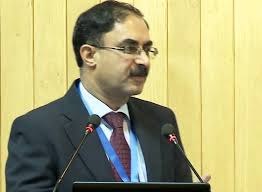
WhatsApp COO Meets Government To Apprise Details Of Steps Taken To Stop Fake News
New Delhi: After the government warned WhatsApp to come up with measures to curb sharing of fake news and rumors, top WhatsApp executives, including COO Matthew Idema, have met IT Secretary and other Indian officials in the government to inform them the steps they have taken to combat the circulation of fake messages on the platform that have even incited mob killing incidents in the country.

As per the government sources information, Mr. Idemamet IT Secretary Ajay Prakash Sawhney yesterday to talk about the steps being taken by the Facebook-owned company to help curb fake news over the platform.
Among other issues, the company’s proposed payments service that is waiting for the government’s approval to launch – also came up during the talks, they said.

When contacted, a WhatsApp spokesperson said: “Over the past week, WhatsApp has met with a broad range of digital literacy experts, business leaders, and government representatives to discuss India’s growing connected society and the importance of private end-to-end encrypted messaging”.
The spokesperson added that the “challenge of misinformation requires action from government, civil society, and technology companies” and that the company would take part in engagements with various stakeholders to tackle these problems.
Previously, WhatsApp had stated that it had already launched some new safety features which included a label that clearly lets you know forwarded messages and controls for group conversations in the last few weeks.
The Indian government has already issued two notices to the WhatsApp, asking it to take immediate measures with effective solutions to curb the menace of fake news beyond just labeling forwards.
Apart from that, the company was also warned about those mediums used for propagation of rumors and the government warned the company that those mediums are liable to be treated as ‘abettors’ and can face legal consequences if they remain “mute spectators”.
WhatsApp responded to the first notice from the government and for the second one, it is yet to respond.
The company said that it is not able to check spam because it cannot see the content of private, encrypted messages. Therefore, blocking can be done only based on user reports, it had said.
WhatsApp is also working with more than half a dozen partners in India to design a digital literacy programme for educating users on spotting false news and to stay safe on the messaging platform.
The company also published full-page advertisements in leading newspapers across the country, first in the series of its user awareness campaign, by giving “easy tips to decide if the information received is indeed true or not.
The officials from WhatsApp have also engaged with the Election Commission (EC) and assured them that it will try to take several steps ahead of polls to prevent such a misuse of its platform, and bring to India its fake news verification model ‘Verificado’ that has already been tested in other markets like Brazil and Mexico.
You May Also Read: Moon Was Once Able To Support Life – But Extensive Research Is Required To Know Details